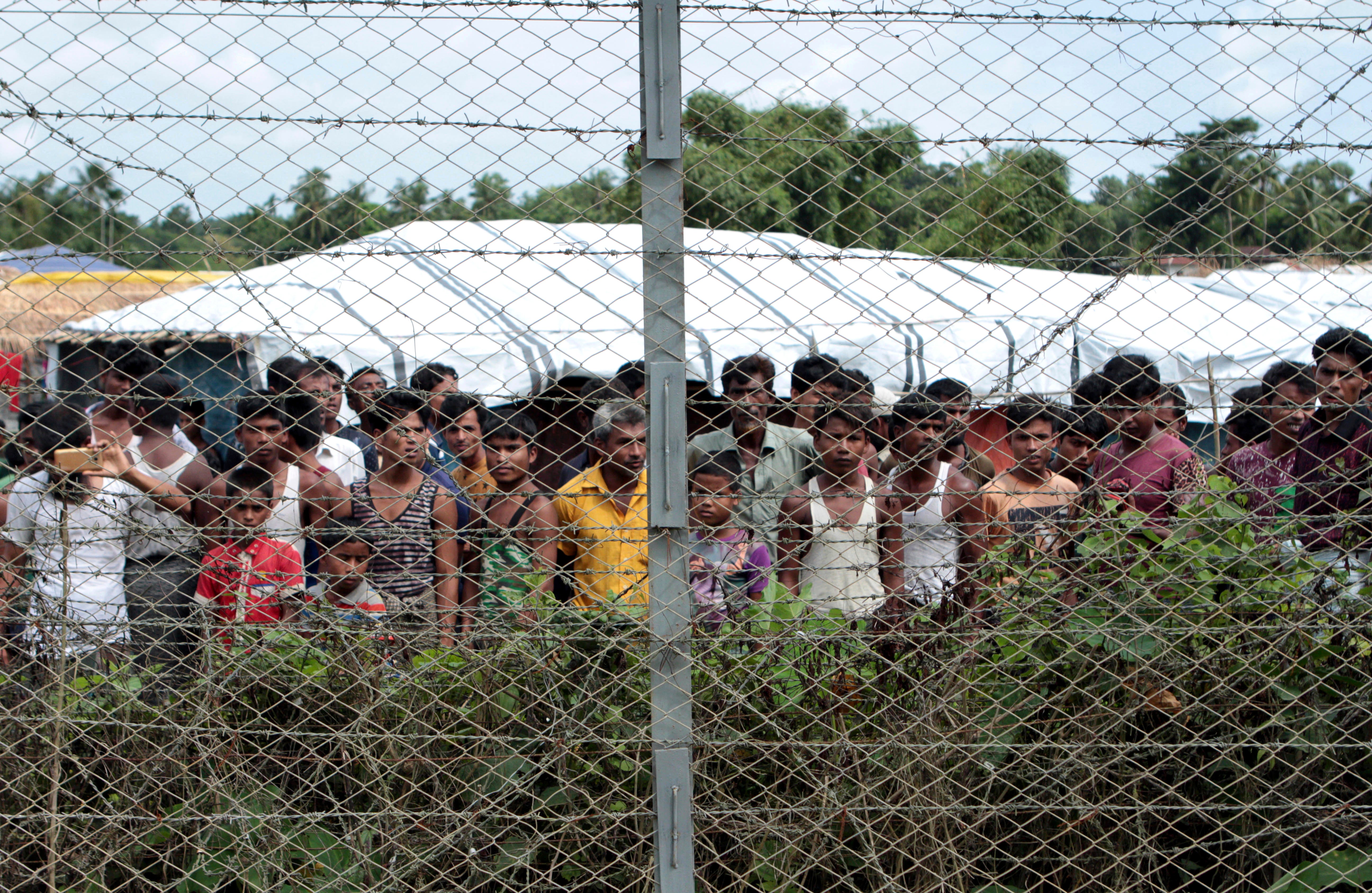Myanmar's conflict-torn Rakhine state could face an imminent acute famine, UN report warns
The U.N. Development Programs is warning that Myanmar’s Rakhine state, home to the Rohingya minority and engulfed in conflict between government forces and a powerful ethnic group, could face an imminent acute famine

Your support helps us to tell the story
From reproductive rights to climate change to Big Tech, The Independent is on the ground when the story is developing. Whether it's investigating the financials of Elon Musk's pro-Trump PAC or producing our latest documentary, 'The A Word', which shines a light on the American women fighting for reproductive rights, we know how important it is to parse out the facts from the messaging.
At such a critical moment in US history, we need reporters on the ground. Your donation allows us to keep sending journalists to speak to both sides of the story.
The Independent is trusted by Americans across the entire political spectrum. And unlike many other quality news outlets, we choose not to lock Americans out of our reporting and analysis with paywalls. We believe quality journalism should be available to everyone, paid for by those who can afford it.
Your support makes all the difference.Myanmar’s Rakhine state, home to the Rohingya minority and engulfed in conflict between government forces and a powerful ethnic group, could face an imminent acute famine, the United Nations development agency warned in a new report.
The U.N. Development Program said in the report issued Thursday that “a perfect storm is brewing” which has put western Rakhine “on the precipice of an unprecedented disaster.”
It pointed to a chain of interlinked developments including restrictions on goods from elsewhere in Myanmar and neighboring Bangladesh, the absence of income for residents, hyperinflation, significantly reduced food production, and a lack of essential services and social safety net.
As a result, UNDP said, “an already highly vulnerable population may be on the brink of collapse in the coming months.”
Buddhist-majority Myanmar has long considered the Rohingya Muslim minority to be “Bengalis” from Bangladesh even though their families have lived in the country for generations. Nearly all have been denied citizenship since 1982.
In August 2017, attacks by a Rohingya insurgent group on Myanmar security personnel triggered a brutal campaign by the military which drove at least 740,000 Rohingya to Bangladesh. The military is accused of mass rape, killings and burning thousands of homes.
Since Myanmar’s military seized power in 2021 from the elected government of Aung San Suu Kyi, pro-democracy guerillas and ethnic minority armed forces have been attempting to oust the military from power.
Last November, the Arakan Army, which is seeking autonomy from Myanmar’s central government, began an offensive against the military in Rakhine and has gained control of more than half of its townships. The Arakan Army, which is the well-armed wing of the Rakhine ethnic minority movement, is also a member of the armed ethnic group alliance trying to topple the military.
The UNDP report said that based on data the agency collected in 2023 and 2024, “Rakhine’s economy has stopped functioning, with critical sectors such as trade, agriculture, and construction nearly at a standstill.”
With domestic and international markets no longer accessible because of blockades, UNDP said people’s incomes are collapsing because they can’t export goods, and that agricultural jobs are disappearing for the same reason.
In addition, it said, imports of cement have stopped, leading to “an exorbitant price increase” and shutting down the construction industry, a major employer.
The report, titled “Rakhine: A Famine in the Making,” said, “Rakhine could face acute famine imminently.”
“Predictions indicate that domestic food production will only cover 20% of its needs by March-April 2025,” UNDP said.
“Internal rice production is plummeting due to a lack of seeds, fertilizers, severe weather conditions, a steep rise in the number of internally displaced people who can longer engage in cultivation, and escalating conflict,” the U.N. agency said. “This, along with the near-total cessation of internal and external trade, will leave over 2 million people at risk of starvation.”
UNDP called for immediate action to allow goods and humanitarian aid into Rakhine, enable unimpeded access for aid workers and ensure their safety, and urgently provide financial resources to enable the agricultural sector to recover.
“Without urgent action, 95% of the population will regress into survival mode, left to fend for themselves amid a drastic reduction in domestic production, skyrocketing prices, widespread unemployment, and heightened insecurity,” UNDP warned.
“With trade routes closed and severe restrictions on aid, Rakhine risks becoming a fully isolated zone of deep human suffering,” the U.N. agency said.